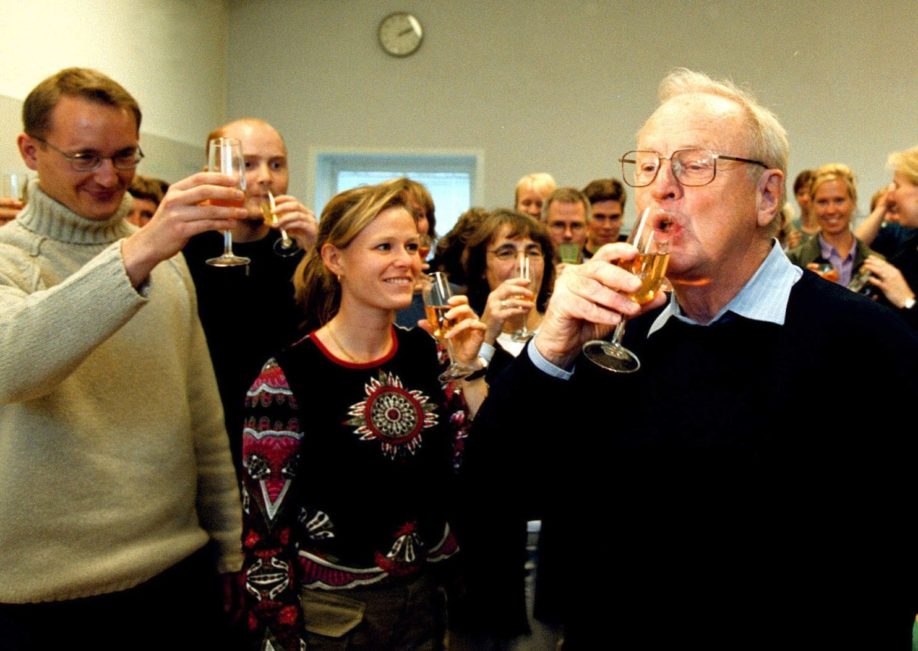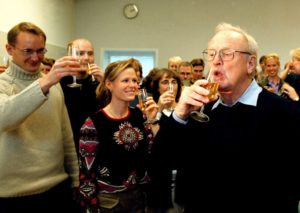

Arvid Carlsson, a Swedish pharmacologist whose research on chemical signals in the brain resulted in a leading treatment for Parkinson’s disease and earned him a Nobel Prize, died June 29 in Gothenburg, Sweden. He was 95.
Dr. Carlsson shared the 2000 Nobel Prize in physiology or medicine with Paul Greengard and Eric R. Kandel, scientists who independently studied the molecular underpinnings of the brain, in particular the ways neural signals affect memory, mood and movement.
Read more: Arvid Carlsson, Nobel laureate who uncovered a treatment for Parkinson’s, dies at 95